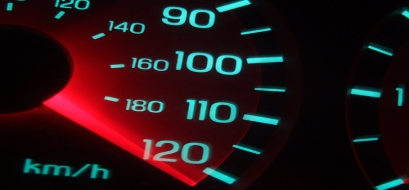Fuel Economy Tips
Fuel economy continues to be a hot topic and Auto Kruser's provides many services to help you maintain favorable fuel efficiency, such as:
Other Ways in which to improve your fuel economy:
Don't Drive So Fast!
Aggressive driving (speeding, rapid acceleration and braking) wastes gas. It can lower your gas mileage by 33 percent at highway speeds and by 5 percent around town. Sensible driving is also safer for you and others, so you may save more than gas money.
Observe the Speed Limit
As a rule of thumb, you can assume that each 5 mph you drive over 60 mph is like paying an additional $0.20 per gallon for gas.
Observing the speed limit is also a safety precaution.
Remove Excess Weight
Avoid keeping unnecessary items in your vehicle, especially heavy ones. An extra 100 pounds in your vehicle could reduce your MPG by up to 2%. The reduction is based on the percentage of extra weight relative to the vehicle's weight and affects smaller vehicles more than larger ones.
Avoid Excess Idling
Idling gets 0 miles per gallon. Cars with larger engines typically waste more gas at idle than do cars with smaller engines.
Use Cruise Control
Using cruise control on the highway helps you maintain a constant speed and, in most cases, will save gas.
Use Overdrive Gears
When you use overdrive gearing, your car's engine speed goes down. This saves gas and reduces engine wear.
Note:
Cost savings are based on an assumed fuel price of $3.69/gallon.
For expert car care and repair, "Don’t Worry… Call Auto Kruser's!"
That's… Kruser with a 'K', Cool guys with a 'C'
Data Sources:
Estimates for fuel savings from sensible driving are based on studies and literature reviews performed by Energy and Environmental Analysis, Inc., Washington, DC.
Estimates for the effect of speed on MPG are based on a study by West, B.H., R.N. McGill, J.W. Hodgson, S.S. Sluder, and D.E. Smith, Development and Verification of Light-Duty Modal Emissions and Fuel Consumption Values for Traffic Models, Oak Ridge National Laboratory, Oak Ridge, Tennessee, March 1999.


